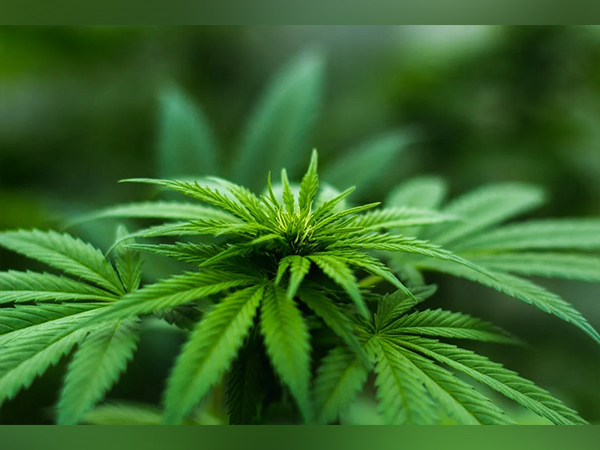SA Ramps Up Cannabis, Hemp Industry with Policy Reforms and Export Focus
The National Cannabis Master Plan has been assigned to the dtic, which is tasked with coordinating policy, streamlining licensing, and ensuring inclusivity across the industry value chain.

- Country:
- South Africa
South Africa is positioning itself as a continental leader in the global cannabis and hemp industry, leveraging its favourable climate, growing private sector participation, and strong policy shifts. According to the Department of Trade, Industry and Competition (the dtic), the country is steadily transitioning from fragmented cultivation to a regulated, economically driven industry with a clear focus on job creation, exports, and industrial innovation.
A Turning Point in National Policy
In his 2025 State of the Nation Address, President Cyril Ramaphosa declared that “We want South Africa to lead in the commercial production of hemp and cannabis.” This statement, seen as a landmark shift in national policy, signalled government’s intent to transform cannabis from a largely informal and stigmatized activity into a mainstream agricultural and industrial sector.
The National Cannabis Master Plan has been assigned to the dtic, which is tasked with coordinating policy, streamlining licensing, and ensuring inclusivity across the industry value chain.
Regulatory Reforms and Pending Legislation
The Cannabis for Private Purposes Act, signed into law in 2024, created the legal foundation for private use and cultivation. However, the dtic is now leading the development of broader commercial frameworks to enable industrial production and global trade.
The Hemp and Cannabis Commercialisation Policy, currently under consultation, is expected to reach Cabinet approval and public comment by April 2026. Meanwhile, an Overarching Cannabis Bill, designed to unify all existing cannabis-related laws, will be presented to Parliament by mid-2027. This Bill will cover private use, commercial cultivation, manufacturing, and research, providing long-term certainty for investors and producers.
Hemp Classification and THC Threshold
A significant milestone came in October 2021, when Cannabis sativa L. with low THC (hemp) was declared an agricultural product under the Plant Improvement Act. This enabled regulated cultivation, import, and export under permit.
South Africa previously had one of the world’s lowest THC limits at 0.2%, creating challenges for local farmers since intense sunlight naturally boosts THC levels in crops. An amendment raising the threshold to 2% under the Plant Improvement Act of 2018 has been proposed and is pending proclamation. Industry players view this as a game changer, broadening opportunities for industrial hemp in textiles, construction, and bio-based manufacturing.
Expanding Medical Cannabis and Export Markets
Medical cannabis, legal since 2017, continues to grow. The South African Health Products Regulatory Authority (SAHPRA) has issued 120 licenses for exports, while the Department of Agriculture has issued over 1 400 cultivation permits. These figures highlight strong institutional support and a rapidly maturing sector.
The dtic, under Minister Parks Tau and the Inter-Ministerial Committee on Hemp and Cannabis, has committed to boosting trade competitiveness by supporting export opportunities, combating illicit trade, ensuring industry standards and compliance, and facilitating funding for downstream activities.
Economic and Employment Impact
The hemp and cannabis industry already employs more than 90 000 people across South Africa, especially in rural provinces where traditional industries are declining. Director-General Simphiwe Hamilton has emphasized the sector’s role as one of the most labour-intensive growth drivers in the economy.
To further support the industry, initiatives such as the Agro-Processing Support Scheme (APSS) provide grants of up to R20 million to encourage investment, stimulate job creation, and drive transformation in agro-processing.
Expanding International Trade Footprint
South Africa is also pursuing access to global markets through trade agreements such as the African Continental Free Trade Agreement (AfCFTA), as well as bilateral engagements with markets in Africa, Asia, and the Middle East.
This global positioning is critical as international demand for hemp-derived products, textiles, food supplements, and medicinal cannabis continues to rise. By aligning legislation with international norms, South Africa is seeking to capture a share of this fast-expanding market.
Building a Global Competitor
With its favourable climate, a robust agricultural sector, and clear government commitment, South Africa is increasingly viewed as a potential hub for cannabis and hemp production. Policymakers argue that the industry’s formalisation will not only generate export earnings but also unlock innovation in pharmaceuticals, construction materials, and renewable products.
“The commercialisation of hemp and cannabis in South Africa is advancing,” the dtic said in its statement. “By working with stakeholders across all provinces, we are laying the groundwork for a sustainable and inclusive industry.”










